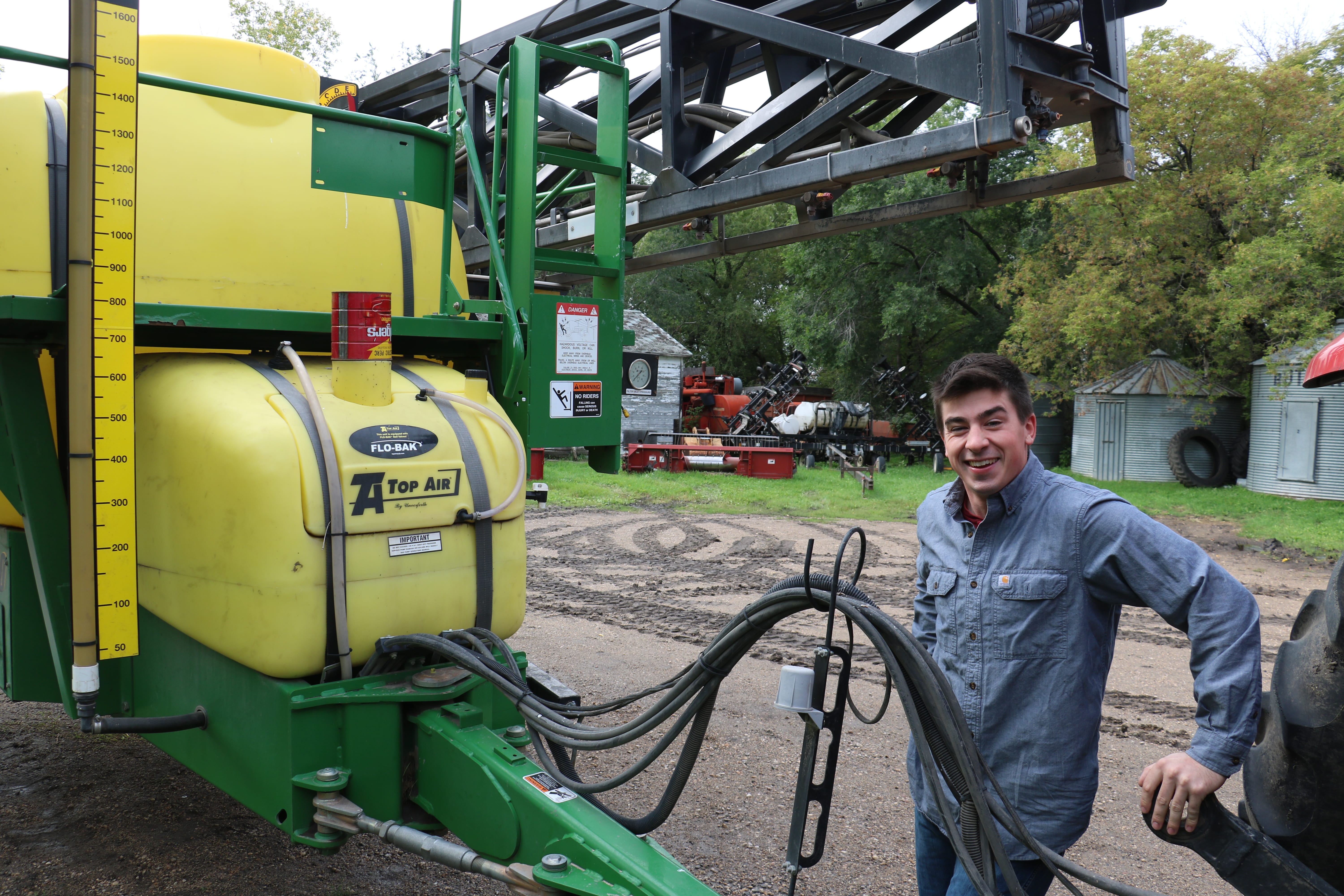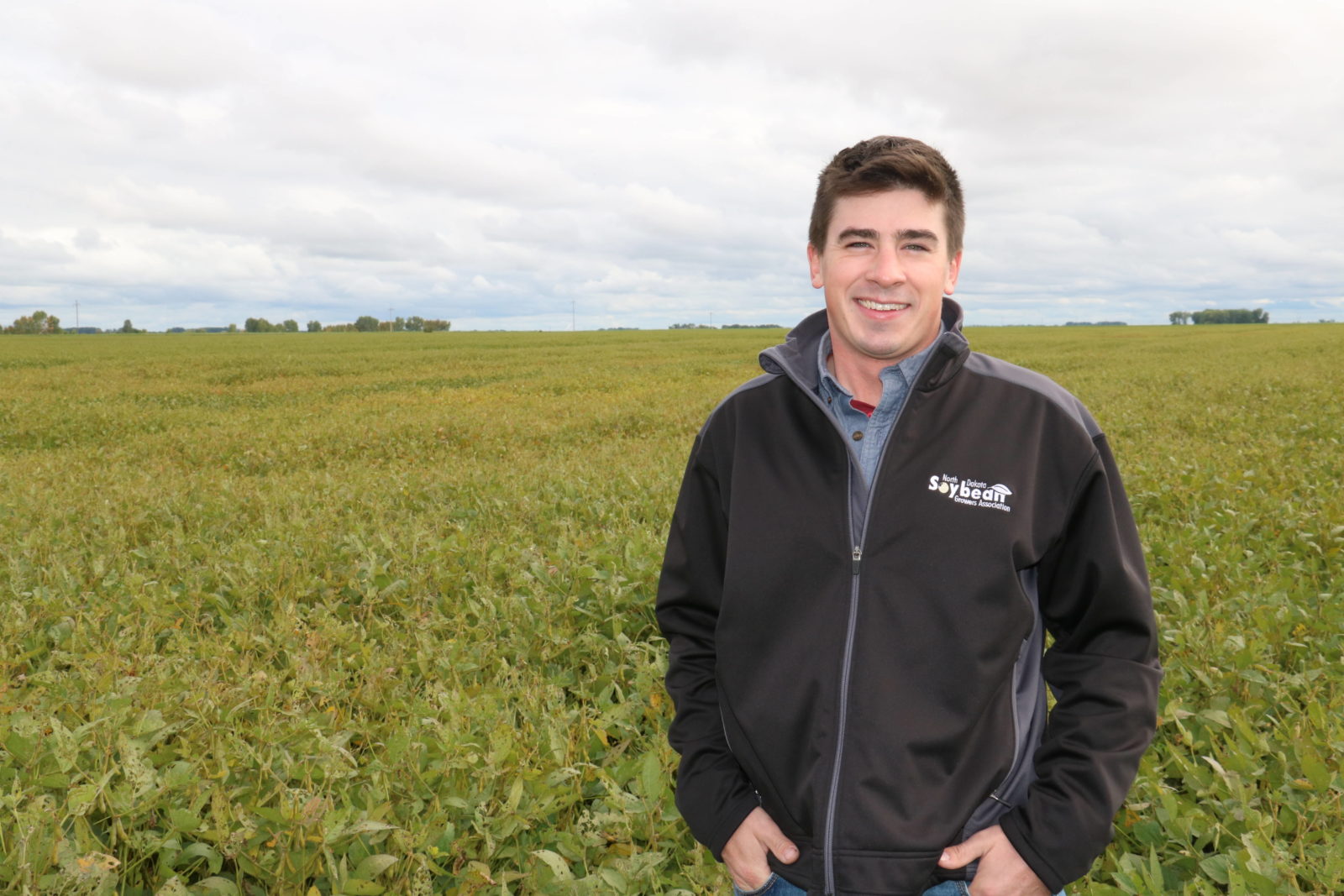Logan Ferry has never really wavered in his life’s goal. From an early age, it was obvious that farming was in his future.
“I’ve been 100 percent positive about that my whole life,” Ferry explains. “I bought sugarbeet stock while I was in college. Both sides of my family farm, and farming is what I know. That’s been pretty clear to anyone who knows me.”
After graduating from high school, Ferry attended North Dakota State College of Science in Wahpeton to study farm management before returning to the family farm.
Roots to the land run deep in the family because Ferry is the fifth generation on the family farm near Manvel, North Dakota, joining his father and uncle in the operation. Over 125 years ago, the family homesteaded the land located a mile west of the Red River.
Today, the farming operation is very diversified, and it includes wheat, barley, soybeans, sugarbeets, edible beans, corn and sunflowers. Logan and his dad also run a cow-calf operation.
“We’ve got a little of everything, which keeps it fun,” Ferry says. “It makes every day different.”
Full Immersion
Ferry says that he is interested in all aspects of the farm, but he is intrigued by the promise of precision agriculture and reduced tillage.
“Operationally, I would like to work toward more minimum or strip till, and incorporate cover crops, both for cattle and soil conservation,” Ferry explains. “It creates a simplicity. You don’t have to make two tillage passes, instead maybe just one or sometimes none. With cattle in the mix, I think cover crops can bring something back to the land.”
Difficult economics in agriculture are making conditions challenging for farmers nationwide. Low prices and trade disruptions are limiting profit opportunities and chewing up farm equity. Ferry is moving forward while keeping an eye on the bottom line.
“These are challenging times for young farmers. Farming is a tough business to get into, and conditions now might be discouraging some young guys from getting in, and the last year has been off the charts,” Ferry says. “I just have to keep pushing. I can’t worry about what’s out of my control. My goal is to market the best I can, raise the best crop I can and not go crazy on the spending.”
In addition to his own experience and education, Ferry can draw upon the resources of his father and uncle who survived treacherous economic times themselves.
“My dad and uncle went through the challenges of the 1980s and the good times in 2012,” Ferry says. “The approach they taught me was to keep it even keel. If you can make it through the tougher conditions, that broadens your perspective and prepares you for future situations.”
Although current conditions are challenging for growers of all ages, Ferry is still enthusiastic about what the future holds for him and other North Dakota farmers.
“With these uncertain markets, we may see some farmers get out of the business,” Ferry says. “We’re in a very fragile time, but at the same time, with advancements like precision agriculture, I think there’s a bright future.”

Emerging Young Leader
In addition to his farming responsibilities, Ferry is a director for the North Dakota Soybean Growers Association (NDSGA). He was first connected to the NDSGA when he was selected to participate in the American Soybean Association and Corteva Agriscience’s Young Leader Program (formerly called the DuPont Young Leader Program).
The Young Leader Program enhances participants’ skills through leadership, communication, and issues-based training while building a strong peer network and generating increased success for their businesses and communities. Many graduates of this training program, including Ferry, assume leadership roles with their state and national soybean associations.
“The Young Leader Program was a good stepping-stone to become more aware of what’s going on in the industry,” Ferry contends. “It’s a golden opportunity.”
Ferry has used the experience he gained as a young leader and NDSGA director to help himself as a farmer and to benefit fellow soybean growers.
“There’s so much more that goes on in the industry that most people never see. Serving on the board broadens my perspective and helps me as a farmer,” Ferry says. “I get to learn while promoting the benefit of our industry, which is important for North Dakota.”
Because the NDSGA works on policies which affect North Dakota farmers, Ferry says that he’s learned a lot about the need for farmer involvement and how that participation works in the legislative process. Equally valuable to Ferry are the connections that he’s made with fellow soybean leaders.
“I enjoy meeting other farmers. A lot of other board members are about the same age, so not only do we hear about the issues, but we get to bounce ideas off each other. You don’t always get that,” Ferry says. “But, it’s not a hayride. I’m still newer to the board and still learning.”

Long Haul
Having a hand in supporting agriculture is an important motivator for Ferry, especially because he has no intention of doing anything else.
“My goal is to farm as long as I can,” Ferry says. “It’s never crossed my mind to do anything else. Farming is what I want to do because that’s what makes me happy.”
Ferry says that he enjoys working with his dad and uncle and that he appreciates how most of his extended family also lives nearby. That family connection to the land, both now and for the future, is part of why Ferry feels completely at home right where he is.
“I get to work around my dad and uncle every day. We get along well, so it’s awfully rewarding,” Ferry says. “Our family farm has been in the same spot since 1874. That means a lot. We’re doing the right things for our farm, so it will be available to the sixth or seventh generations if they want to keep it going.”
